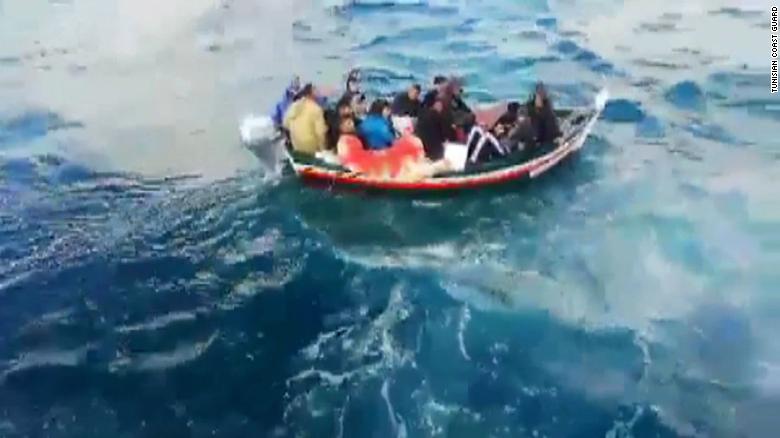Desperation and hope drive migrants onto ‘boats of death’ in Tunisia

Above her son’s image, 53-year-old Samia Jabloun has written the words “Dove Sei?” — “Where are you?” in Italian — in permanent marker. Samia often carries the scraps of IT student Fadi’s life, and the clues she’s gathered to his disappearance, in a pink plastic folder. She says the desperate hunt for her son consumes her every waking hour: “I will search for him all my life. I will search for him everywhere. I will search for him until I know the truth.””I hate El Harka,” she says, using the local term for illegal migration, “I don’t encourage people to go. The mother suffers when the son goes. The mother suffers a lot.” Despite everything, Samia is convinced that Fadi is still alive somewhere. Photos of him are dotted throughout her house, near the harbor he left in that small boat.She often passes by a mural with a striking painting of her son next to a map of Tunisia.Every night, she says, he visits her in her dreams. “When I am asleep, I always see him. He says to me: ‘My mother, I am not dead. I am alive, wait for me, I will arrive, I will arrive.'”






